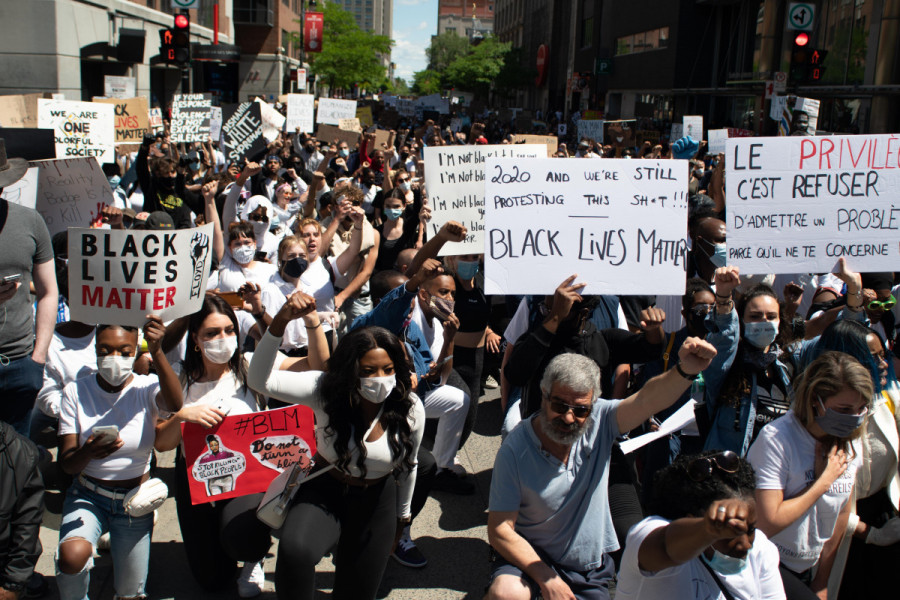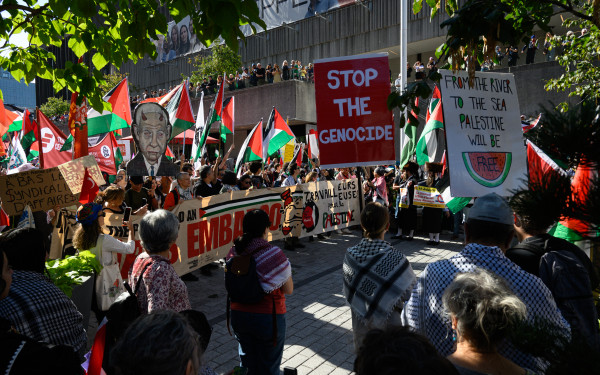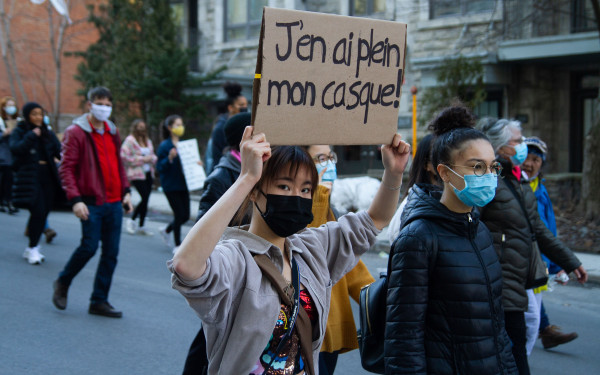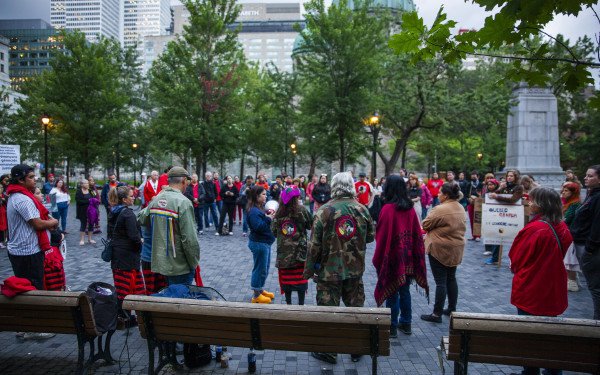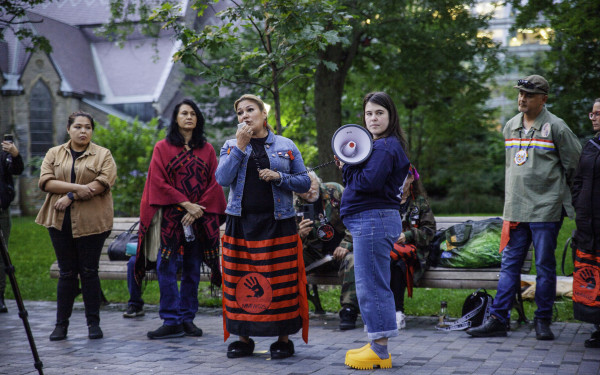A summer of protest
Where do we go from here?
It is understood that your work seldom merges with your personal life—but this has proved false for me in the summer of 2020.
As a reporter for The Link, I covered various protests and movements that were advocating for people who look like me.
As an international student, I covered a protest in July demanding regularization for immigrants, including international students.
As a Black person, I covered a noise demonstration in June calling for the abolition of prisons and police in a country—Canada—where Black people are disproportionately mistreated by law enforcement.
However, looking like the person I’m representing doesn’t matter, which is the beauty of being a journalist—we can envelop ourselves in other people’s stories and concerns, empathize with them, and use our medium to amplify their truths. At least we should.
This summer, there has been a momentous push towards political and social justice. This has mostly been fuelled by years of ignorance towards racism, labour rights, immigrant rights, and a whole slew of other issues. The Link’s writers have reported on historic events this summer—continuing a legacy of covering protests in the spirit of advocacy journalism.
Reflections on summer activism
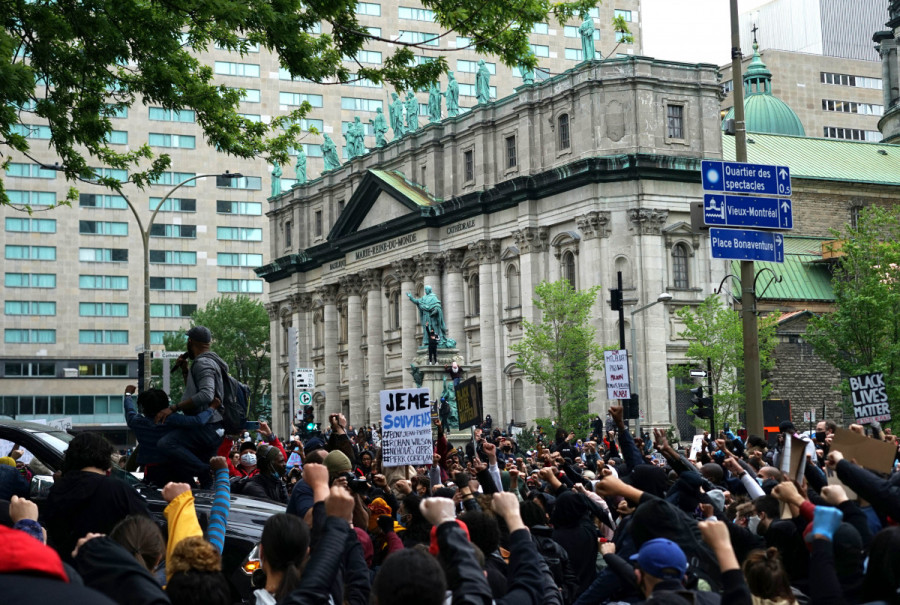
Montreal’s first major protest against anti-Black racism happened on May 31. What started out as a peaceful protest ultimately turned violent and chaotic due to the SPVM. Rubber bullets were shot, and teargas was launched into the crowd—three reporters from The Link had riot guns raised directly at them whilst covering the event. They were unsure whether these weapons shot rubber bullets or teargas canisters.
Even though the protests responded to a larger trend of activism that exploded first in the United States after the murder of George Floyd by police, the protests highlighted years of anti-Black policing in Canada.
One of the protests’ main demands was to end random searches. Activists also called for the government to implement an anti-racism committee that would craft measures to fight racial discrimination.
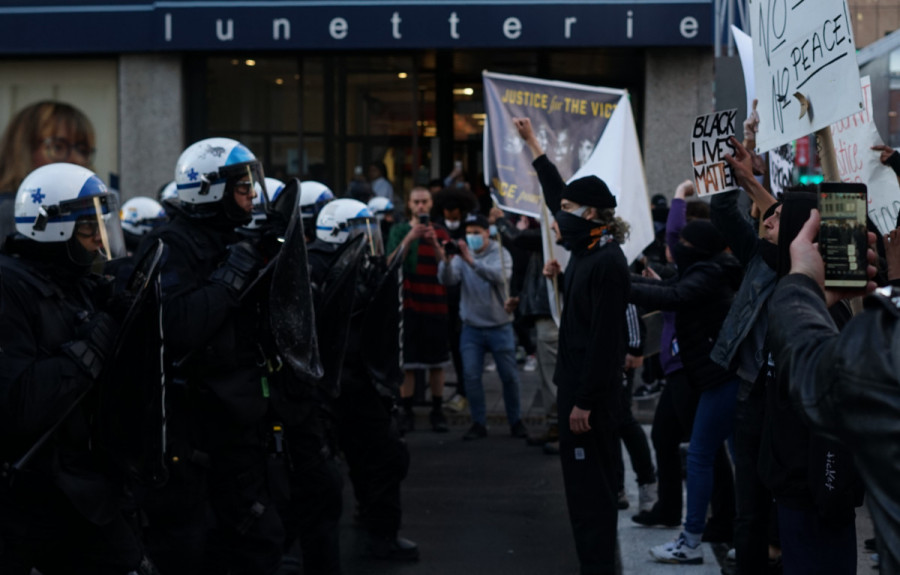
Some of the government officials who responded include Mayor Valérie Plante, promising a new street check policy, and Premier François Legault, who signalled the creation of an anti-racism task force, while simultaneously claiming that systemic racism does not exist in the province.
The new street check policy was officially announced on July 8. Black communities saw it as flawed, criticizing it for only ensuring certain stops will require collecting data on race.
Critics also suggested the policy should make sure people who do get their data collected by police should also be informed whether that information will appear on a criminal background check. Another suggestion was there should be sanctions placed on police officers who violate the policy.
Marlihan Lopez is an Afrofeminist activist who works as a coordinator at Concordia’s Simone de Beauvoir Institute. She is also a part of Black LIves Matter Montreal, which was part of a coalition calling to defund the SPVM on July 7. On behalf of this coalition, she said the new arrest policy is disappointing.
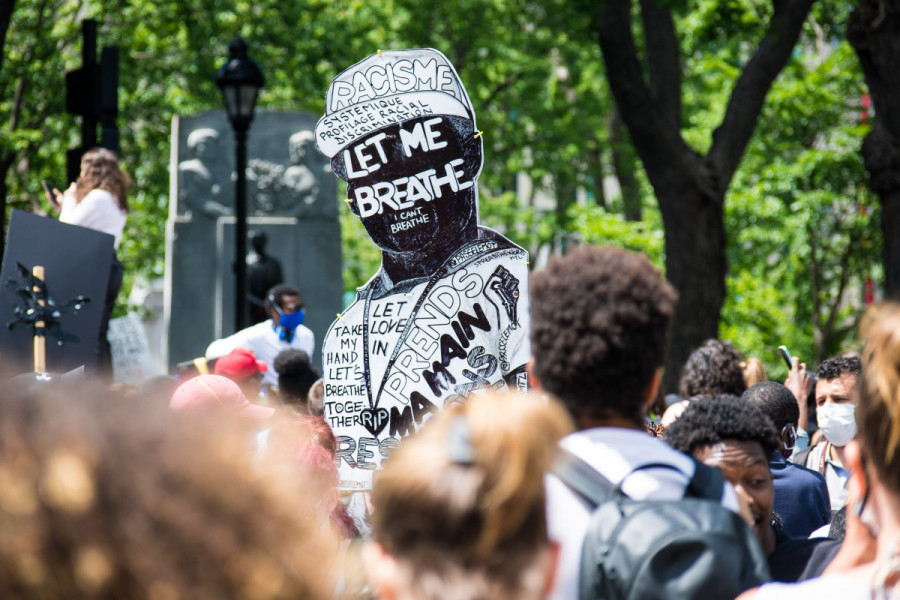
One of her main concerns was that it still gives police complete control over whom to arrest and doesn’t address the systemic issues behind racial profiling.
The coalition has become completely distrustful of the police’s ability to make any reasonable decisions, so the primary objective now is defunding the police and reinvesting the money into other sectors of society, such as community initiatives and housing.
Lopez said Legault’s anti-racism task force had many pitfalls, including the fact that it had two police officers on it, one of whom policed Indigenous communities.
Even though two Black members were added to the task force and given leadership positions to add a sense of legitimacy, Lopez said, there was no Indigenous representation. This is incredibly problematic as Indigenous people bear the brunt of the negative effects of policing in the country, said Lopez.
“The Indigenous members of our coalition were disappointed in this lack of representation,” she said. “But we weren’t expecting much from a government that legislates racist laws such as Law 21,” she added, referring to the law banning religious symbols, such as Muslim face-coverings, in Quebec.
Hady Anne is a representative from Solidarity Across Borders, which organized an immigrant rights protest in June. The group has led calls for regularization of all immigrants across Canada.
Anne told The Link that the summer protests have not aroused any response from government officials yet—but their momentum hasn’t slowed, and the group will be hosting follow-up protests whilst also creating petitions.
The Anti-Carceral Group—which organized the noise demonstration—continued its cries to dismantle the prison industrial complex, holding a vigil on Prisoners’ Justice Day on Aug. 10 to commemorate those who have died in prison.
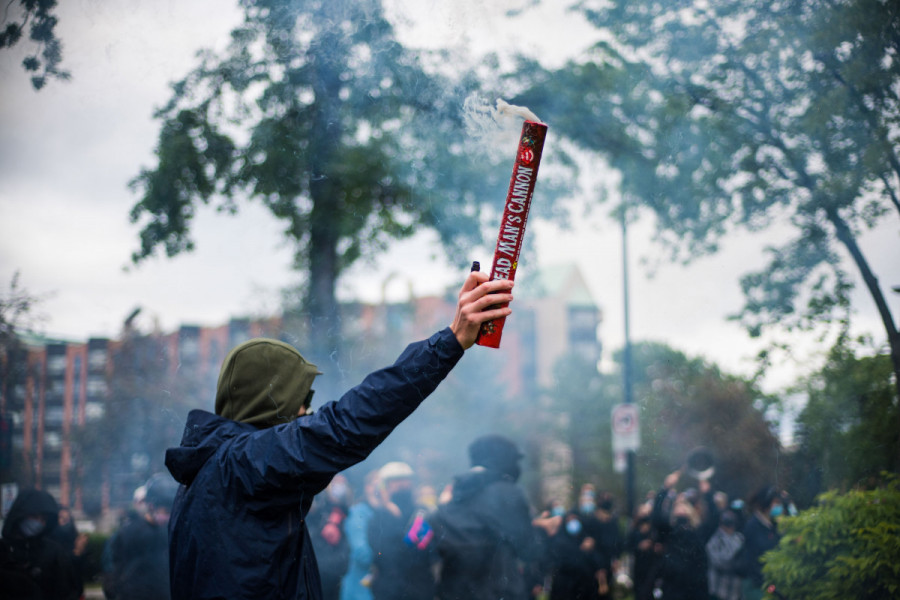
“While protest and direct action are absolutely important, they are not the only activism that needs to happen. Mutual aid and direct support of marginalized communities is equally radical.” — Wade Walker
How students can carry on the torch in the fall
Rushdia Mehreen is a Concordia alumna involved with Solidarity Across Borders and India Civil Watch. She was heavily involved in the Quebec student protests in 2012.
One hopeful ounce of progress she has witnessed in recent movements is the increase in racial diversity, and how there are more BIPOC at the forefront.
She said Black students and Students of Colour are usually at the margins of these large movements—such as the 2012 students rights protests, in the beginning—even whilst they are among the most heavily affected.
She also highlighted the importance of Concordia Student Union committees. If the CSU doesn’t have a committee for an issue you need to address, she said, then you should begin the steps of creating the committee.
“Petitions aren’t enough,” said Mehreen. “They’re a good start because they can make you aware of how many people you can reach and how many people support your cause. But instead of being the end, they should be the means to get someplace else.”
One of the main things she recommends is to constantly push the limits of your demands and tactics and aim higher. She used the 2012 students movement as an example—how it began with small teach-ins and demonstrations that eventually resulted in larger mobilizations.
Another of her recommendations is to rely on structural facilities to push change. Students should not be apprehensive about joining the CSU or club associations around political issues they’re passionate about. The bigger the number, the better.
This could also be useful for cross-university solidarity, she said. If the CSU and student unions at other universities collectively decry similar issues, it is more likely that the universities will be receptive to their demands.
She also recommends the Quebec Public Interest Research Group at Concordia, which is one of the many ways incoming and returning students can get involved in advocacy work.
QPIRG is a resource centre for students and a hub of community-research organizing that strives to raise support and awareness around grassroots organizing around social and environmental issues.
Wade Walker, the finance and organizational planning coordinator for QPIRG, said students can get involved through the group’s various events, publications, and working groups.
“We host Anti-Colonial Week in collaboration with Frigo Vert in November, with events where people can learn about anti-colonialism, how to be a better ally to Indigenous people, and are invited to come to the Anti-Colonial Dinner,” Walker said.
Beyond just participating in events, students can join QPIRG’s board of directors. “On the board, they learn about how a small non-profit functions and a lot about the grassroots activism happening throughout the city,” they added.
Walker said students have also found value in joining one of the 30 different working groups QPIRG has around the city, where they directly immerse themselves in activist groups.
An example of one of these groups is Accessibilize Montreal, a group that attempts to make Montreal more accessible for its diverse bodies by using cultural production and peer advocacy.
The life of an activist can be a precarious one—if not because of the risk of getting arrested or brutalized by police at a protest, then because of the stigma surrounding it.
Walker recalled consoling students who felt trepidations towards activist work by reminding them that activism doesn’t look like one thing.
“While protest and direct action are absolutely important, they are not the only activism that needs to happen,” they said. “Mutual aid and direct support of marginalized communities is equally radical.”
Helping cook free meals for people who need them, fundraising for non-status people living in the city, or being a penpal to an LGBTQ2S prisoner are all forms of activism, said Walker.
For Black students specifically, Lopez said, they should think about getting involved in The Black Caucus at Concordia, which is a collective of students, staff, and faculty organizing to sustain Black solidarity and support to combat anti-Black racism on campus.
“There’s currently a lot of organizing around BLM and the advancement of Black students at Concordia, so taking part in the movement to push for specific measures that address systemic racism and the expansion of black scholarship is a very important way to involve yourself,” Lopez said.
This article originally appeared in The Disorientation Issue, published September 8, 2020.

